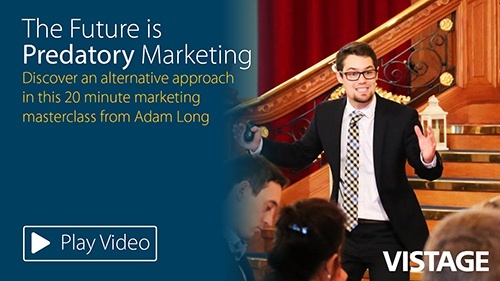
I recently saw an article by Fiona Smith on '6 ways to boost your word-of-mouth'. The title in itself grabbed me – why? Because when we ask business leaders the key question ‘How do your customers find you?’ and they don’t know the answer, they always say ‘word-of-mouth’.
I know they are trying to dodge the question, or if they are not dodging the question they typically don’t have the data to back up the answers to the next two questions:
• Who are your best referrers?
• How much business did they introduce to you last year?
Those business leaders who use ‘word-of-mouth’ as a serious and measured channel to market will be engaged with all six boosting ways that Fiona and Marc Cowper [founder of Recomazing] outline, and will understand Marc’s top recommendations:
1. Their reputation is in your hands – will you be as good as they say you are?2. Referred customers are ‘power customers’ – they have already been screened and are good to go
3. Money spent on rewarding referrals is wasted – they need to refer ‘from the heart’
4. Fans want to help, but they are lazy – help them!
5. Go beyond expectations – if they are surprised and delighted by you they will talk about you
6. Recovery – we tell our clients that all relationships ‘trip up’ from time to time; it’s all in the recovery.
So after we have asked ‘how do your customers find you?’ and get the answer: word-of-mouth [remember, that’s because they don’t really know] the next question is ‘how do you help those referrers to refer you?’
I am going to take Marc’s points to demonstrate how your strategic marketing and communications activity can help your referrers refer you better.
• Their reputation – make sure your business position is clear and aligned through your business, so every engagement with your business is consistent. Do what you say you are going to do, all of the time. And if you don’t, see point [5] – make sure you recover well.
• ‘Power customers’ means they go through your Buyer’s Journey more quickly, so they are likely to need fewer touch points and less sales time. And data tells us they stay around longer.
• ‘Money spent on rewarding referrals’ – I agree with Marc here. Sorry, but if you pay for referrals they are just not authentic.
• ‘Fans want to help’ – they do, so help them. Make sure the value you add to your customers is clear and aligned in all of your communications material. ‘Educate’ them and give them the material to refer you – in addition to their experience. Don’t forget, businesses spend 70% to 90% researching you before they engage in a conversation with your sales team.
• ‘Go beyond expectations’ – understand your point of difference, your competitive advantage; use that to go beyond and ‘wow’ your customers. They will like talking about their experience.
• ‘Recovery’ – your business will have purpose and values that talk about your behaviour.
Don’t panic when you stuff up – just get back to basic behaviour and look at how you recover. No relationship is perfect.
Before looking at Marc’s tips you may want to ask these questions of your business:
1. How do your customers really find you?
2. How do you know who the good referrers are?
3. How do you help those referrers to refer you?
4. Do they refer the right clients?
5. How much revenue did those referrers give to your business last FY?
Word-of-mouth is a channel to market – however, it needs support and nurturing, like all of your strategic marketing activities.
More from Vistage:
Our gift to you...
Apply now for your personal leadership consultation with a Vistage Chair. They'll help you assess areas of strength of your business and identify areas of potential growth.


